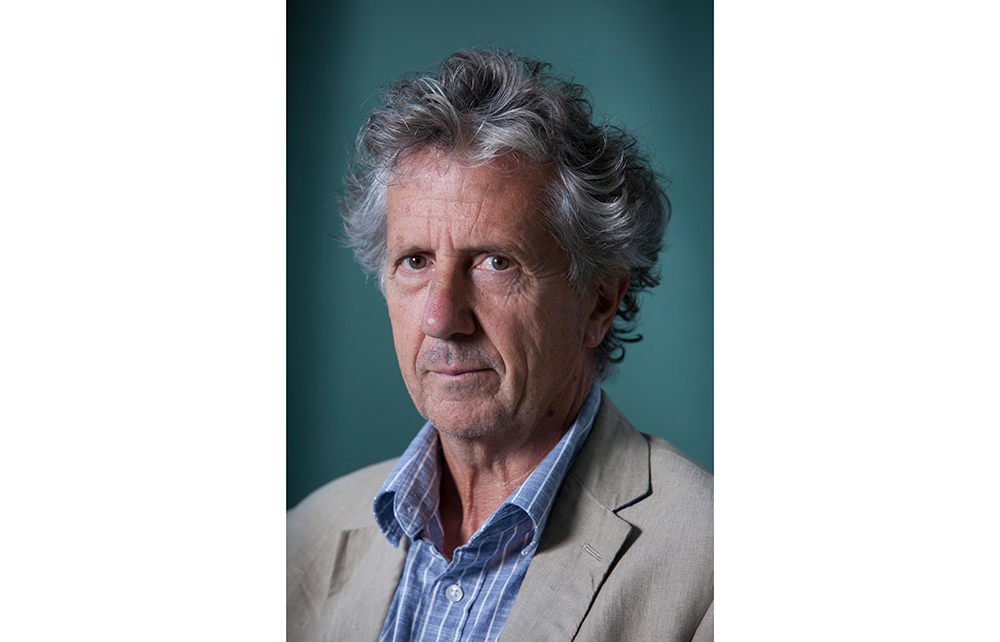Blake Morrison’s previous memoirsAnd When Did You Last See Your Father? (1993) and Things My Mother Never Told Me (2002) examined his parents with the clear-eyed appraisal that only adulthood brings. In the first, he evoked the vigour of his father, Arthur: his sense of fun when rule-breaking for thrills, and the selfish entitlement which allowed him to follow his whims, oblivious of the feelings of others. The contrast between his energy when fit and his frailty when ill were stark – a dichotomy many face when a beloved parent ages and dies. The second memoir examined the life of his mother, Kim, who, like Arthur, was a doctor, but had a very different background. Both books mused on the bittersweet memories of lost times.
Morrison’s despair is evident when he describes his beloved sister becoming truculent and abusive when drunk
Now, in another engrossing story, Morrison turns his gaze on his two sisters, both dead: Gill, 16 months younger than him, and Josie, his half sister, whose biological relationship to him was only confirmed a few months before she died.
Children from dysfunctional families are often unaware of how abnormal their circumstances are. So it was in this case, when Arthur and Kim’s friendship with a pub-owning couple evolved into something much darker as a result of Arthur’s long affair with the wife – known to Morrison as ‘Auntie Beaty’. The situation was made more complex by the fact that Kim must have been aware of this, while maintaining the friendship. The girl Josie and her mother Beaty were constant presences in Morrison’s childhood, though the true relationship between them all was hidden in a web of secrets and lies, maintained for decades.
But the main focus of this latest memoir is Gill. As a child, she was not academic like her brother and was often prone to tears. When she failed her 11-plus she was sent to boarding school, where she was bullied – the start of lifelong problems. After leaving, she had to stop sharing with flatmates when it became clear she was stealing from them, and she was ‘let go’ from various jobs. She also developed a serious shop-lifting habit. But the main scourge of her life was alcohol. Morrison’s despair is evident when he describes how the sister he loved became truculent and abusive when drunk, and how countless attempts by the family to help proved useless.
He writes of the bond he, his parents and Gill’s husband formed trying to sort out the family mess, of his sister’s neglect of her children, and her bitterness and self-pity when drunk. Of course they all remembered her generosity and sweetness before alcoholism took over.
Having lost my own sister to addiction (heroin, followed by suicide), I empathise with Morrison’s love and concern, and his need to keep a distance for self-preservation. I also recognised the early symptoms in Gill that are characteristic of borderline personality disorder (BPD), which I suspect my own sister suffered from – mood swings, self-hatred, attention seeking and suicidal ideation.
Later in the book Morrison mentions BPD, and I was interested to learn that his father exhibited sociopathic tendencies – lack of conscience, narcissism and limited empathy, at least for the wife he betrayed. My mother was also sociopathic, and I wonder about this link with a BPD child.
Morrison interweaves his memoir with wry anecdotes about love and hatred between brothers and sisters in the past, both funny and shocking, which enrich the book. We are left feeling that he gave as much as he could to Gill, even if it didn’t seem enough to him. But in the words of the American writer Norman Maclean:
We can seldom help anybody. Either we don’t know what part to give, or the part that is needed is not wanted… or we do not have the part that is needed.






Comments